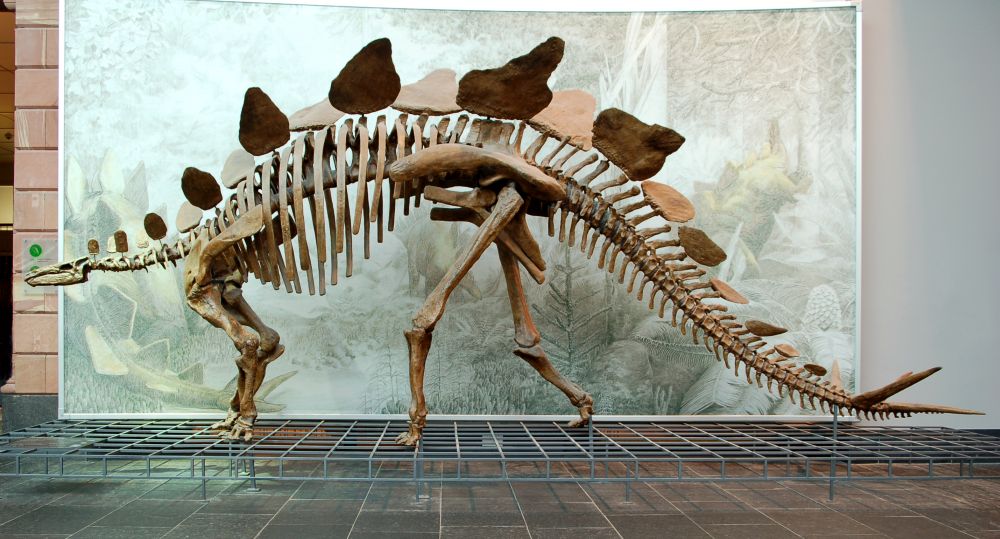In a stunning turn of events, a nearly complete stegosaurus skeleton nicknamed “Apex” has shattered auction records, selling for an astounding $44.6 million at Sotheby’s New York. This sale, which took place on July 17, 2024, as part of the auction house’s annual “Geek Week” series, has catapulted Apex to the status of the most expensive fossil ever sold. Standing 11 feet tall and stretching 27 feet from nose to tail, this remarkable specimen consists of 319 bones, with 254 being original fossils dating back to the Late Jurassic Period, approximately 146 to 161 million years ago.

The journey of Apex began in May 2022 when commercial paleontologist Jason Cooper discovered the fossil on private land in Moffat County, Colorado, near the aptly named town of Dinosaur. Excavated from the renowned Morrison Formation, an area known for its rich fossil deposits, the dig was completed in October 2023. Cooper’s property has previously yielded several Jurassic period dinosaurs, some of which have been donated to institutions such as the Brigham Young University Museum of Paleontology and the Frost Museum of Science.

The final selling price of $44.6 million far exceeded Sotheby’s initial estimate of $4-6 million, surpassing the previous record held by a Tyrannosaurus rex nicknamed “Stan” that sold for $31.8 million in 2020. The auction attracted significant attention from collectors, museums, and dinosaur enthusiasts worldwide, though the identity of the buyer remains undisclosed, as per Sotheby’s policy. This extraordinary sale has once again highlighted the immense value placed on well-preserved dinosaur fossils in both scientific and commercial spheres.


